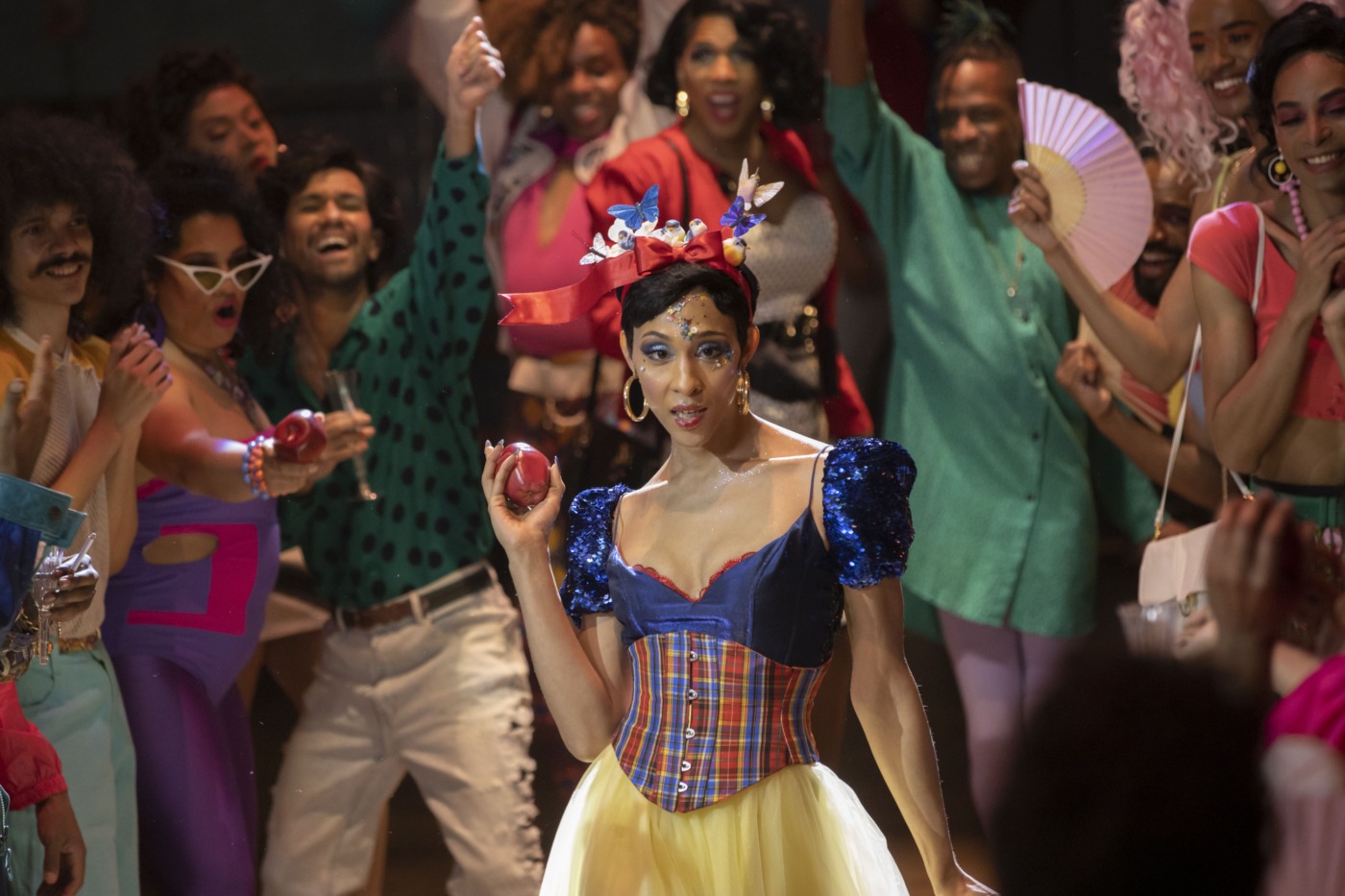Live, werk, ‘Pose’: season three review
Several months after the US release, the third season of Pose debuted in early August in the UK. In March it was announced that this season would be its last. As one would expect from a show about the New York City ball community, this final season exudes glamour, while facing head-on the catastrophic reality of the AIDS crisis of the 80s and 90s. Inspired by the infamous documentary Paris Is Burning, the series allows many to see themselves fully represented through well-rounded and fully-realised characters. Given its history-making Emmy nominations, it’s clear that this season sticks the landing and allows the show to go out on its own sparkling, optimistic terms.
As was the case in the first two seasons, the main cast continues to astound in season three. Mj Rodriguez illuminates the screen as Blanca. Many characters refer to her as their “heart” throughout, and her role as the heart of the show is cemented here, given her sincerity and warmth. Rodriguez is the first trans person to be nominated in a lead acting category at the Emmys for her performance this season – and she deserves to make history this awards season.
One of the greatest joys of this season was following all of Blanca’s successes – by the finale, she is surrounded by the love of not only her boyfriend Chris (Jeremy Pope) and her friends, but the full ballroom community. She learns to put herself first, allowing herself to be loved, while still being unwaveringly kind to those around her – her intervention with Pray Tell (Billy Porter) is particularly noteworthy. She becomes a successful professional, an AIDS activist, a grandmother of the House of Evangelista, and a ballroom legend.
What has always struck me about Pose is its ability to blend fantasy with reality
Elektra’s (Dominique Jackson) series arc reaches an appropriately extravagant conclusion this season. In one of the season’s most surprising moments, she makes a deal with the Mafia to launder money through her phone-sex business that – shockingly – works out completely fine for all involved. As always, Elektra delivered some of the best lines of the season, demonstrating true reading with her wordplay and biting wit. Aside from her material successes, I enjoyed the compassionate, philanthropic side to Elektra, looking after others – the third episode, ‘The Trunk’, displays the full depth of Jackson’s magic as Elektra, and is a deeply emotional episode that elaborates on some of the character’s roots.
Episode four, ‘Take Me to Church’, is also a high point. It earned Billy Porter an Emmy nomination for Outstanding Lead Actor in a Drama Series – and so it should have. Porter gives us a purposeful Pray Tell who, in the wake of world-shattering news, returns home, now refusing to conform and desperately searching for his family’s acceptance and apologies. This marks the beginning of the end for Pray Tell, and with sombre determination, it’s clear he will be going out his way, ripping control back from the hands of the disease that killed so many.
What has always struck me about Pose is its ability to blend fantasy with reality, like in the ball itself, where attendees can step away from the injustices and mistreatment they experience as queer POC in the real world to live out their fantasies. The goal of Blanca, amongst others, is for the world outside to be just as safe and free as the ballroom is for her community: moments of the fantastical in Pose are used to represent this boundary breaking. One could compare the church setting of episode four to the ballroom, as both are extravagant in fashion and rich in emotion, music, and celebration. Candy (Angelica Ross) and Cubby’s (Jeremy McClain) appearances before the wedding of Angel (Indya Moore) and Papi (Angel Bismark Curiel) were tasteful moments of imagination – I’m always glad when Angelica Ross returns to the show. The wedding itself is splendorous, standing for something so much bigger than the central couple as their union is celebrated by the full community. Papi’s song during the vows is beautifully rom-com, and doesn’t overshadow the significance of the scene.
Pose does not shy away from the bleak or the distressing
Pose does not shy away from the bleak or the distressing. The show is deeply aware of its power in being able to speak the realities of the people damaged, shaken and lost to AIDS, particularly people of colour. Blanca and Pray Tell have to fight to be included in the drug trial to treat AIDS, which had up to that point only included two people of colour out of eighty patients. Survivor’s guilt haunts the series as a whole. The ACT UP protest in the final episode is intensely powerful, the choir performance of ‘The Man I Love’ not quite covering the cries and anger from the crowd. It is an image that has stayed with me long after watching the season.
The lack of closure to Damon’s journey was disappointing: given his narrative was central to Pose from the pilot episode, his disappearance from the final season left quite a noticeable gap. The writing-out of Damon’s character can be forgiven, though, given that actor Ryan Jamal Swain had to step away from filming because of a family tragedy. Still, the in-show explanation was unfortunately a somewhat lacklustre conclusion for what had been such a vibrant and prominent character.
I could talk about Pose forever. With an incredible ensemble cast, it’s difficult to exercise restraint when discussing the stand-out moments and people from any season. Pose remains uplifting, ending on an optimistic note, without hiding the death and turmoil suffered by a community who, despite everything, stayed strong and unapologetically themselves. Pose had a precise aim – to take you to the ball and make you fall in love with the people there – and it certainly achieved it. There is no other show quite like it.

Comments